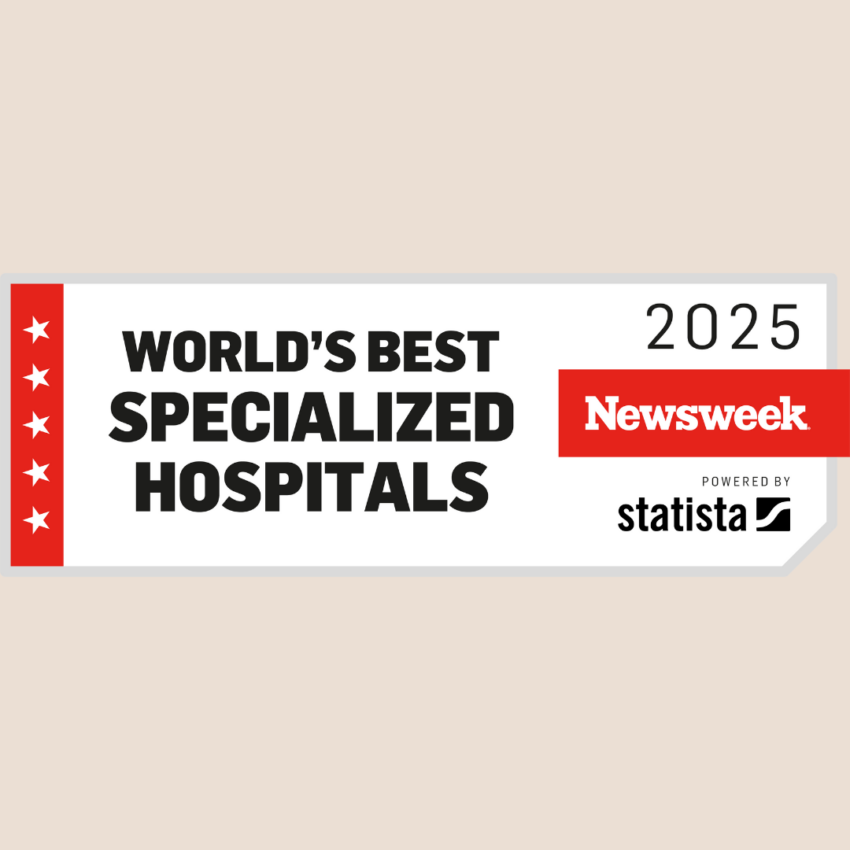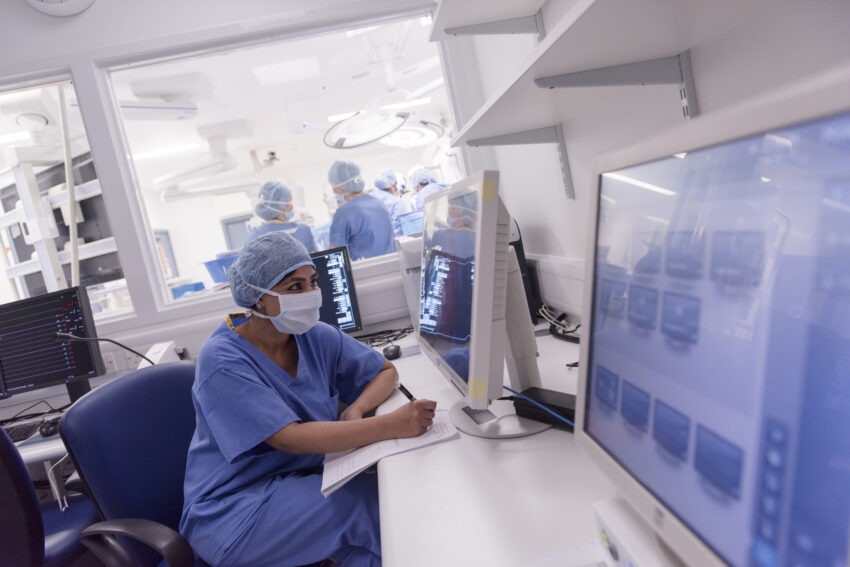Our specialists at Royal Brompton and Harefield hospitals are pioneers in minimally invasive treatments for vascular diseases (blood vessel disorders) that improve safety and outcomes.
Experts in vascular disease
Our consultants diagnose and treat a range of vascular conditions, including:
- abdominal aortic aneurysm
- carotid artery disease
- deep vein thrombosis
- peripheral artery disease
- poor circulation
- varicose veins

Treating complex heart and vascular diseases
As part of our aortic team of cardiac and vascular surgeons, we can treat patients who have combined problems with their heart and aorta (the largest blood vessel). For example, we have the expertise to treat patients with heart failure who also develop an abdominal aortic aneurysm (AAA).
Sometimes, patients may experience vascular complications either before or after heart surgery. Our vascular surgeons are on-hand to treat patients for complications such as compartment syndrome (where bleeding occurs within a section or compartment of muscle).
With our multidisciplinary approach to care, we can ensure the greatest safety before and after heart surgery.

Advancing vascular care through research
As part of our close academic partnership with bioengineers at Imperial College London, we have developed new types of artificial stents and grafts that last longer, avoiding repeat procedures.
We also work to advance the field of robotically controlled endovascular interventions which greatly improve the level of control in performing procedures.
Conditions
-
Aortic aneurysm
Aortic aneurysm occurs when a part of the aorta becomes weak and becomes enlarged.
-
Aortic disease
Aortic stenosis is a narrowing of the aortic valve opening, restricting blood flow to the aorta.
-
Aortic dissection
Aortic dissection is when the aorta tears causing blood to rush through.
-
Aortic regurgitation
Aortic regurgitation is when the valve blood leaks back into the heart through the valve.
-
Aortic stenosis
Aortic stenosis is a disease that affects the main outlet valve of the heart and is the third most common cardiovascular disease.
-
Coronary heart disease
Coronary heart disease is caused by the narrowing of the coronary arteries that supply the heart muscle with oxygen-rich blood.
-
Poor circulation
Poor circulation is a reduction of blood flow around the body, when the circulatory system is unable to pump blood around the body effectively.
Treatments
-
Aortic valve repair and replacement
An aortic valve repair or replacement procedure treats a damaged aortic valve in your heart to enhance blood flow.
-
Coronary angioplasty
Coronary angioplasty is a procedure that improves blood flow to your heart.
-
Coronary artery bypass grafting (CABG)
CABG bypasses the narrowed sections of your arteries to improve blood flow.
-
Heart valve repair or replacement
Heart valve surgery can repair or replace a damaged valve.
-
Transcatheter aortic valve implantation (TAVI)
TAVI is a minimally invasive procedure where a new aortic valve is inserted into your heart.
-
Thoracic endovascular aortic repair (TEVAR) procedure
TEVAR uses a stent-graft to reinforce and repair a weakened section of the aorta.
Investigations
-
Cardiac catheterisation (coronary angiogram)
Cardiac catheterisation uses x-rays and a dye to take detailed pictures of the arteries.
-
Cardiac MRI scan (CMR)
A cardiac magnetic resonance (CMR) scan is non-invasive and shows detailed images of your heart.
-
CT coronary angiography scan
A CT (computerised tomography) coronary angiography is a type of scan that shows the structure of the heart and the arteries which supply blood to the heart.
-
CT scan
A CT uses X-rays and a computer to produce images of many structures inside the body.
-
Diagnostic tests for heart conditions
We offer a range of diagnostic tests at our state-of-the-art facilities.
-
Echocardiogram
An echocardiogram – also known as an echo – is a scan that examines the heart and surrounding blood vessels.
-
Electrocardiogram (ECG)
An electrocardiogram (also known as an ECG) is a test which is used to check your heart’s rhythm and electrical activity.
-
Exercise stress test
An exercise stress test assesses how the heart is working during physical activity.
-
MRI scan
An MRI scan is a medical imaging technique that uses a magnetic field and radio waves to create pictures of an internal cross-section of the body’s structures.
-
PET-CT and nuclear medicine
PET-CT and nuclear medicine scans use small amounts of radioactive material to diagnose a variety of diseases.
Locations
Our vascular surgeons provide care at these locations:
Discover our vascular surgeons
Our vascular surgeons are world-leading experts who offer the latest and most innovative treatments, supported by an experienced multi-disciplinary team, to ensure you receive the right treatment for you
